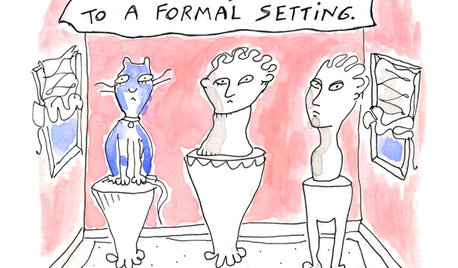From the ASPCA:
People Foods to Avoid Feeding Your Pets
Chocolate, Macadamia nuts, avocadosthese foods may sound delicious to you, but theyÂre actually quite dangerous for our animal companions. Our nutrition experts have put together a handy list of the top toxic people foods to avoid feeding your pet. As always, if you suspect your pet has eaten any of the following foods, please note the amount ingested and contact your veterinarian or the ASPCA Animal Poison Control Center at (888) 426-4435.
Chocolate, Coffee, Caffeine
These products all contain substances called methylxanthines, which are found in cacao seeds, the fruit of the plant used to make coffee and in the nuts of an extract used in some sodas. When ingested by pets, methylxanthines can cause vomiting and diarrhea, panting, excessive thirst and urination, hyperactivity, abnormal heart rhythm, tremors, seizures and even death. Note that darker chocolate is more dangerous than milk chocolate. White chocolate has the lowest level of methylxanthines, while baking chocolate contains the highest.
Alcohol
Alcoholic beverages and food products containing alcohol can cause vomiting, diarrhea, decreased coordination, central nervous system depression, difficulty breathing, tremors, abnormal blood acidity, coma and even death.
Avocado
The leaves, fruit, seeds and bark of avocados contain Persin, which can cause vomiting and diarrhea in dogs. Birds and rodents are especially sensitive to avocado poisoning, and can develop congestion, difficulty breathing and fluid accumulation around the heart. Some ingestions may even be fatal.
Macadamia Nuts
Macadamia nuts are commonly used in many cookies and candies. However, they can cause problems for your canine companion. These nuts have caused weakness, depression, vomiting, tremors and hyperthermia in dogs. Signs usually appear within 12 hours of ingestion and last approximately 12 to 48 hours.
Grapes & Raisins
Although the toxic substance within grapes and raisins is unknown, these fruits can cause kidney failure. In pets who already have certain health problems, signs may be more dramatic.
Yeast Dough
Yeast dough can rise and cause gas to accumulate in your petÂs digestive system. This can be painful and can cause the stomach or intestines to rupture. Because the risk diminishes after the dough is cooked and the yeast has fully risen, pets can have small bits of bread as treats. However, these treats should not constitute more than 5 percent to 10 percent of your petÂs daily caloric intake.
Raw/Undercooked Meat, Eggs and Bones
Raw meat and raw eggs can contain bacteria such as Salmonella and E. coli that can be harmful to pets. In addition, raw eggs contain an enzyme called avidin that decreases the absorption of biotin (a B vitamin), which can lead to skin and coat problems. Feeding your pet raw bones may seem like a natural and healthy option that might occur if your pet lived in the wild. However, this can be very dangerous for a domestic pet, who might choke on bones, or sustain a grave injury should the bone splinter and become lodged in or puncture your petÂs digestive tract.
Xylitol
Xylitol is used as a sweetener in many products, including gum, candy, baked goods and toothpaste. It can cause insulin release in most species, which can lead to liver failure. The increase in insulin leads to hypoglycemia (lowered sugar levels). Initial signs of toxicosis include vomiting, lethargy and loss of coordination. Signs can progress to recumbancy and seizures. Elevated liver enzymes and liver failure can be seen within a few days.
Onions, Garlic, Chives
These vegetables and herbs can cause gastrointestinal irritation and could lead to red blood cell damage. Although cats are more susceptible, dogs are also at risk if a large enough amount is consumed. Toxicity is normally diagnosed through history, clinical signs and microscopic confirmation of Heinz bodies. An occasional low dose, such as what might be found in pet foods or treats, likely will not cause a problem, but we recommend that you do NOT give your pets large quantities of these foods.
Milk
Because pets do not possess significant amounts of lactase (the enzyme that breaks down lactose in milk), milk and other milk-based products cause them diarrhea or other digestive upset.
Salt
Large amounts of salt can produce excessive thirst and urination, or even sodium ion poisoning in pets. Signs that your pet may have eaten too many salty foods include vomiting, diarrhea, depression, tremors, elevated body temperature, seizures and even death. In other words, keep those salty chips to yourself!


















mazer415
lisa11310
Related Professionals
San Angelo Architects & Building Designers · Frisco Furniture & Accessories · Savannah Furniture & Accessories · Spartanburg Furniture & Accessories · Fort Carson Furniture & Accessories · Golden Glades Furniture & Accessories · Hawthorne Furniture & Accessories · Mill Valley Furniture & Accessories · Kingsburg Furniture & Accessories · Buena Park Cabinets & Cabinetry · Universal City Cabinets & Cabinetry · Golden Glades Flooring Contractors · Sun City Flooring Contractors · Tampa Flooring Contractors · Troy Flooring Contractorsweed30 St. Louis
Gina_W
trinigemini
cynthia_gw
spedigrees z4VT
weed30 St. Louis
olyagrove
ltcollins1949Original Author
trinigemini
cynthia_gw
trancegemini_wa
holligator
spedigrees z4VT
carmen_grower_2007
ltcollins1949Original Author
spedigrees z4VT
annzgw
User
pjb999
pjb999
weed30 St. Louis